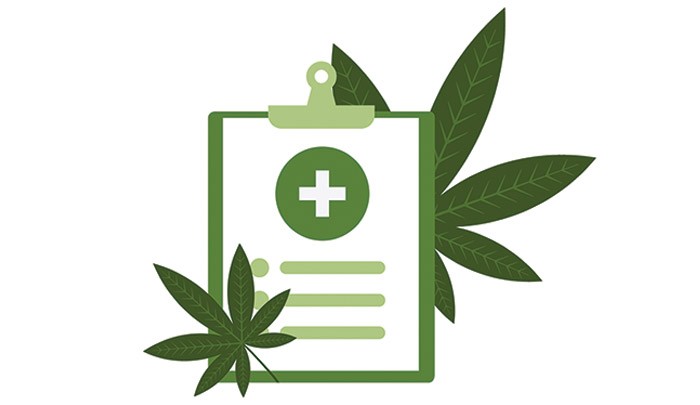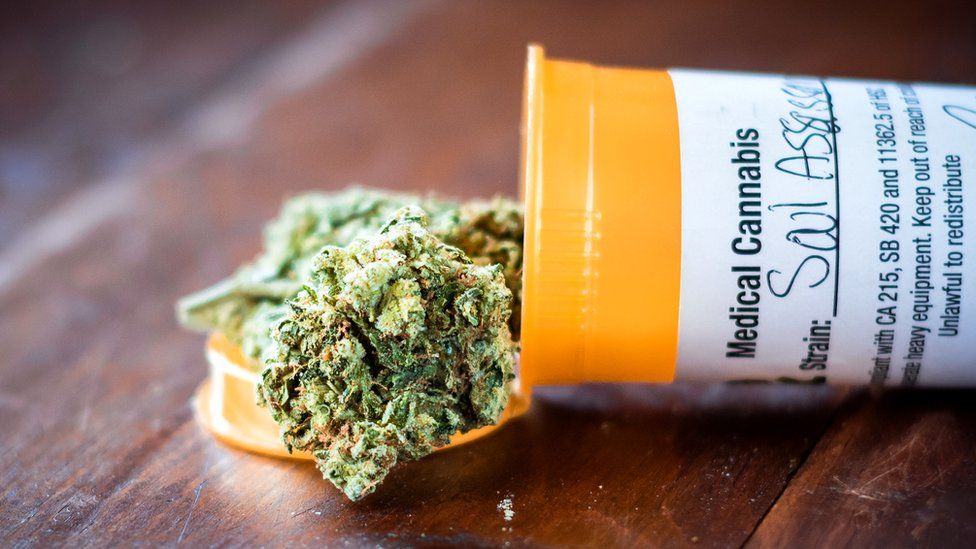Taking Advantage Of the Prospective of Medical Marijuana: Comprehending Its Duty in Promoting Health and Alleviating Wellness Issues

The Science Behind Clinical Marijuana
The efficacy of clinical cannabis in dealing with different health problems is rooted in its interaction with the endocannabinoid system within the body. This complex organic system plays a vital role in managing various physical procedures such as hunger, discomfort feeling, state of mind, and memory. The active compounds in clinical cannabis, understood as cannabinoids, resemble the endocannabinoids produced normally by the body, binding to cannabinoid receptors to regulate these physical functions.
One of the main cannabinoids discovered in medical cannabis is cannabidiol (CBD), which is non-psychoactive and has been studied for its potential therapeutic effects. By understanding the science behind just how clinical marijuana engages with the endocannabinoid system, scientists can continue to explore its potential in advertising health and relieving numerous wellness concerns.
Restorative Properties of Marijuana
Understanding the detailed interactions between cannabinoids and the endocannabinoid system sheds light on the healing homes of cannabis for different health problems. Cannabinoids, such as tetrahydrocannabinol (THC) and cannabidiol (CBD), are the primary substances responsible for the medicinal advantages of cannabis.
Researches have shown the effectiveness of clinical marijuana in easing symptoms related to persistent pain, numerous sclerosis, and chemotherapy-induced nausea and throwing up - Medical Marijuana Card Clinton MS. Furthermore, marijuana has shown pledge in dealing with mental health conditions like anxiousness, depression, and post-traumatic tension problem (PTSD)
Furthermore, the anti-inflammatory homes of cannabinoids make marijuana a possible treatment option for inflammatory problems such as joint inflammation and inflammatory bowel illness. The healing potential of cannabis remains to be checked out with study, offering new insights into its role in promoting wellness and dealing with a variety of wellness concerns.
Medical Marijuana for Persistent Discomfort
Checking out the efficiency of clinical marijuana in handling chronic pain reveals its possible as a feasible treatment choice for individuals looking for choice discomfort relief techniques. Chronic pain affects millions worldwide, typically causing a decreased high quality of life and reliance on conventional pain drugs that might include unwanted side effects or risks of dependency. Clinical cannabis, with its energetic substances like THC and CBD, has shown promise in alleviating chronic pain by engaging with the body's endocannabinoid system to manage discomfort perception.
Researches have actually suggested that clinical cannabis can successfully lower neuropathic discomfort, arthritis-related pain, and discomfort related to conditions like numerous sclerosis. Its anti-inflammatory residential or commercial properties can additionally add to pain alleviation in conditions such as fibromyalgia. Medical marijuana offers an extra natural technique to pain administration, possibly decreasing the demand for opioids and other drugs with harsher side read review effects.
As study into the advantages of medical cannabis for persistent discomfort continues to broaden, its role in giving alternative pain alleviation options comes to be progressively substantial for clients and health care carriers alike.

Marijuana for Anxiety and Anxiety
Research demonstrates the possibility of cannabis in mitigating signs of anxiousness and stress, using a promising avenue for those looking for choice therapeutic choices. Stress and anxiety and stress and anxiety prevail mental health problems that can considerably affect a person's health and daily functioning. Standard therapies such as treatment and medication may not always be efficient for every person, bring about a growing interest in alternative treatments like medical cannabis.
Cannabis consists of substances referred to as cannabinoids, such as cannabidiol (CBD) and tetrahydrocannabinol (THC), which connect with the body's endocannabinoid system to manage numerous features, consisting of state of mind and stress and anxiety reactions. Researches have shown that CBD, particularly, has anxiolytic buildings, indicating it can help in reducing stress and anxiety degrees. THC, on the various other hand, may supply relaxation and mood-lifting impacts that can be valuable for taking care of stress and anxiety.
Specific feedbacks to marijuana can differ, so it is necessary carson medical clinic for people thinking about cannabis as a treatment alternative for anxiousness and anxiety to talk to healthcare professionals knowledgeable about clinical cannabis to establish one of the most appropriate products and does for their requirements.
Cannabis in Epilepsy Therapy
With the tested efficacy of marijuana in dealing with anxiety and stress and anxiety, interest has actually transformed towards its possible function in the therapy of epilepsy. Epilepsy is a neurological condition defined by frequent seizures, which can substantially impact an individual's lifestyle. For people whose seizures are not appropriately managed with conventional therapies, discovering different healing choices such as clinical marijuana has become significantly appropriate.
Study on using marijuana for epilepsy is still developing, yet there is growing proof to recommend that specific substances in marijuana, such as cannabidiol (CBD), may supply anticonvulsant effects. CBD, in certain, has revealed assurance in decreasing the regularity and severity of seizures in some individuals with epilepsy, causing the authorization of Epidiolex, a CBD-based medication, for the therapy of certain sorts of seizures.
While even more researches are needed to fully comprehend the mechanisms behind marijuana' possible benefits for epilepsy and to identify one of the most reliable solutions and dosages, the present searchings for suggest an appealing future for including clinical cannabis into epilepsy treatment plans.
Final Thought
In final thought, medical marijuana has actually revealed promising healing residential properties in dealing with different wellness problems such as chronic pain, epilepsy, tension, and anxiety. Comprehending the function of medical marijuana in health care can lead to better treatment options for individuals looking for choice treatments.
From chronic discomfort monitoring to anxiety alleviation and even in the treatment of go to these guys epilepsy, the duty of clinical marijuana is interesting and complex. Medical Marijuana Card Clinton MS.Discovering the effectiveness of clinical cannabis in taking care of chronic pain discloses its possible as a feasible therapy choice for people looking for choice pain relief methods. Medical cannabis, with its energetic compounds like THC and CBD, has actually shown promise in minimizing chronic pain by communicating with the body's endocannabinoid system to manage discomfort assumption
Studies have actually shown that clinical marijuana can successfully reduce neuropathic pain, arthritis-related discomfort, and pain connected with problems like several sclerosis.In verdict, clinical marijuana has actually revealed encouraging healing homes in dealing with different wellness problems such as persistent discomfort, epilepsy, stress, and anxiety.